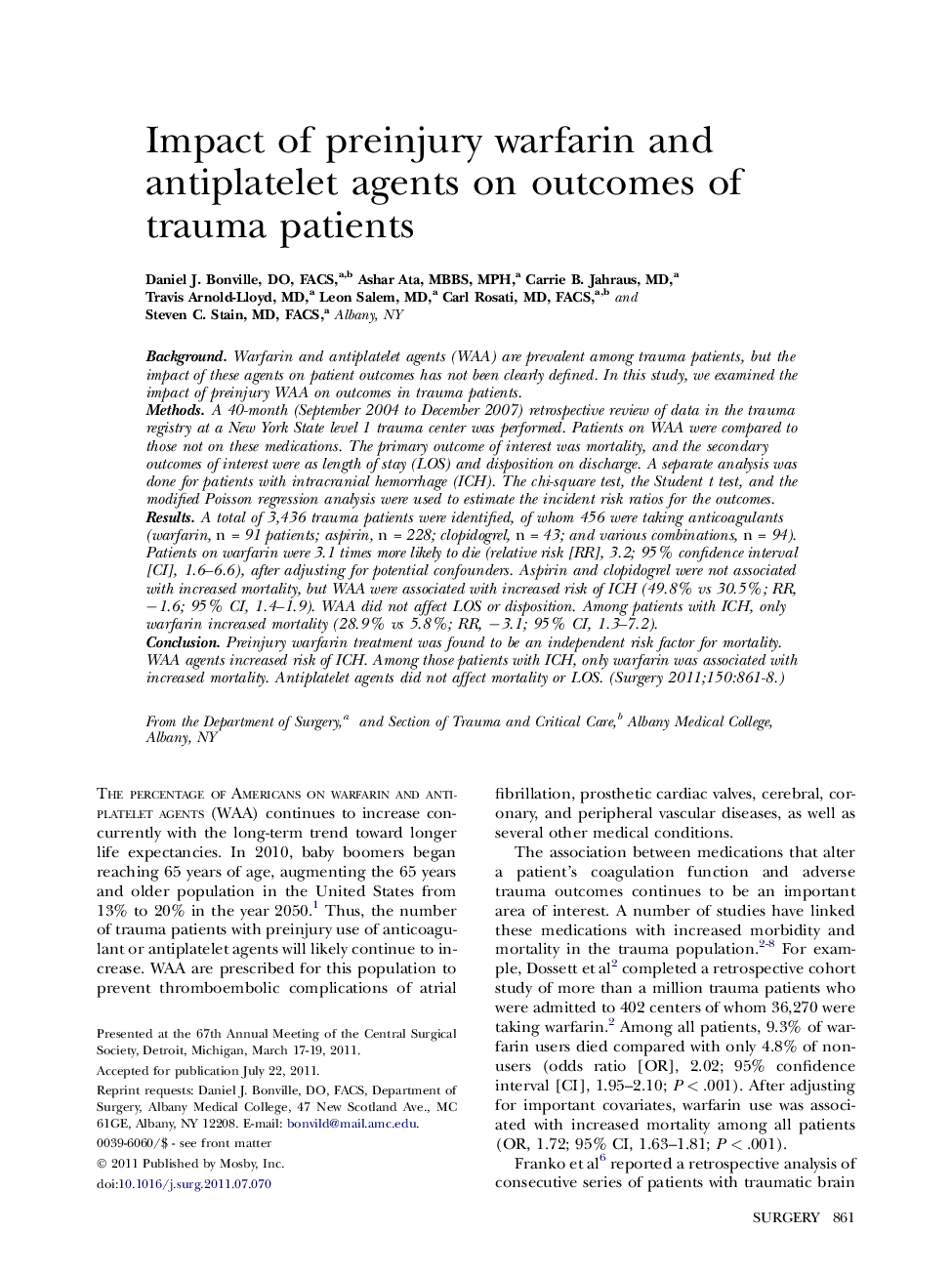| Article ID | Journal | Published Year | Pages | File Type |
|---|---|---|---|---|
| 4308591 | Surgery | 2011 | 8 Pages |
BackgroundWarfarin and antiplatelet agents (WAA) are prevalent among trauma patients, but the impact of these agents on patient outcomes has not been clearly defined. In this study, we examined the impact of preinjury WAA on outcomes in trauma patients.MethodsA 40-month (September 2004 to December 2007) retrospective review of data in the trauma registry at a New York State level 1 trauma center was performed. Patients on WAA were compared to those not on these medications. The primary outcome of interest was mortality, and the secondary outcomes of interest were as length of stay (LOS) and disposition on discharge. A separate analysis was done for patients with intracranial hemorrhage (ICH). The chi-square test, the Student t test, and the modified Poisson regression analysis were used to estimate the incident risk ratios for the outcomes.ResultsA total of 3,436 trauma patients were identified, of whom 456 were taking anticoagulants (warfarin, n = 91 patients; aspirin, n = 228; clopidogrel, n = 43; and various combinations, n = 94). Patients on warfarin were 3.1 times more likely to die (relative risk [RR], 3.2; 95% confidence interval [CI], 1.6–6.6), after adjusting for potential confounders. Aspirin and clopidogrel were not associated with increased mortality, but WAA were associated with increased risk of ICH (49.8% vs 30.5%; RR, −1.6; 95% CI, 1.4–1.9). WAA did not affect LOS or disposition. Among patients with ICH, only warfarin increased mortality (28.9% vs 5.8%; RR, −3.1; 95% CI, 1.3–7.2).ConclusionPreinjury warfarin treatment was found to be an independent risk factor for mortality. WAA agents increased risk of ICH. Among those patients with ICH, only warfarin was associated with increased mortality. Antiplatelet agents did not affect mortality or LOS.
